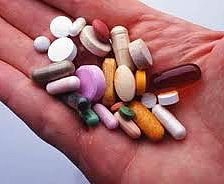Q&A: Does New Diabetes Vaccine Offer a Real Cure for Type 1 Diabetes?
Promising new research offers a cure for diabetes in the form of a vaccine which would ironically train the patient's own immune system to stop attacking and destroying the cells in the body that make insulin. The cause of Type 1 Diabetes can be traced to the immune system becoming confused and destroying the cells that normally make insulin in the body. The hormone insulin is needed to control blood sugar levels. People afflicted with Diabetes 1 have to take insulin by injection or tablets.
More recently implantable devices have been developed that track blood sugar levels, and insulin levels and release insulin into the body as needed. The new vaccine offers the first real chance of a cure.
What are the Health Risks from Type 1 Diabetes?
Diabetes and the artificial maintenance of insulin levels in the body is associated with a range of health problems:
- Hearing impairment is a higher risk for people with diabetes.
- Pregnancy - Elevated blood sugar levels pose serious risks for both the unborn child and the mother. These risks include stillbirth, miscarriage and the chance of birth defects. The mother also faces increased risk of ketoacidosis, preeclampsia, eye problems and high blood pressure and
- Osteoporosis - Diabetes can cause decreases in bone mineral density and increased likelihood of osteoporosis.
- Skin - Diabetes causes increased risk of skin problems, and problems with both bacterial and fungal infections.
- Mouth and Gum - Infections in the mouth and on the gums may occur more frequently and be harder to heal. This applies particularly for people with poor dental hygiene.
- Feet - Diabetes can cause nerve damage and circulation problems in the feet. Minor cuts and blisters can become serious infections in the feet.
- Risks to Eyesight - Diabetes is known to cause damage to the blood vessels of the retina (referred to as diabetic retinopathy). This poses a risk to the eyesight. Diabetes also increases the risk of eye damage through cataracts and glaucoma.
- Damage to the Kidney (referred to as nephropathy) - Diabetes can cause damage to the myriad of small blood vessels in the kidneys that help filter waste products from the blood. Severe damage can cause kidney failure or severe disease requiring regular dialysis or even kidney transplants.
- Damage to the Nerves (referred to as neuropathy) - Excess sugar through lack of insulin control trigger damage to the walls of the small blood vessels that nourish the nerves in the body. Nerves in the legs are especially at risk. The symptoms of this are numbness, tingling sensations. Other symptoms are a burning feeling or pain, usually starting at the tips of the fingers or toes and spreading upward. Poorly control of blood sugar levels may lead to complete loss of feeling in arms and legs. Damage to nerves in the gut may cause symptoms of vomiting, nausea, diarrhea or even constipation. For men, erectile dysfunction may also be triggered.
- Heart and Circulation Problems - Diabetes considerably increases the risk of various heart and circulation problems, including chest pain (angina), coronary artery disease, heart attack risks, stroke, high blood pressure and narrowing of the arteries (atherosclerosis).
What are the Risks of Supplementary Insulin to Control Diabetes?
It is very hard to get the amount of insulin taken right, because it depends on the size and type or food eaten. Long-term complications of type 1 diabetes and insulin therapy occurring gradually and cumulatively, over many years. The poorer the control of blood sugar - the higher the risk of complications, and the more quickly they develop. In time diabetes complications may be life-threatening, for example through damage to the kidneys or may cause permanent disabilities. So clearly a better and more reliable remedy is needed for Type 1 Diabetes, rather than taking insulin, and a vaccine offers a real solution.
Has a Diabetes Vaccine been Developed?
A study in 80 patients showed a newly developed Diabetes vaccine could be used in an unusual way. Normally vaccines are used to trigger the immune system to recognise a foreign disease organism such as a bacteria or virus and to attack it. Often the vaccine is a impaired version of the disease organism itself or a less harmful relative. Cow pox was used to develop a vaccine for small pox, for example. In this case a research team at the Stanford University used a vaccine with the opposite effect to make the body immune to the specific white blood cells erroneously shed to wrongly attack the beta cells in the pancreas that produce natural insulin.
The patients in the trail were given weekly injections of the vaccine for three months. When tested after the treatment the levels of the white blood cells programmed to attack the cells in the pancreas were much lower. There were signs of recovery of beta cell function in patients given the vaccine. Other parts of the immune system were left intact because the vaccine targeted specific white blood cells and not all of them. This vaccine is a totally new concept and new way of developing a vaccine. It offers hope that other auto-immune diseases may be treated in the same way.
The research is still in its infancy and more long term trials are needed to show its effectiveness. There were signs that the vaccine would need to be used at two month intervals.


